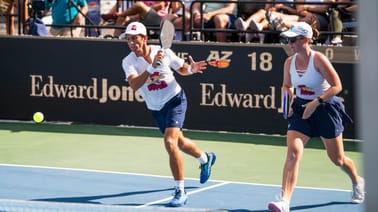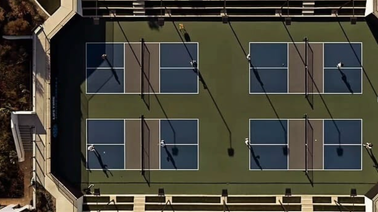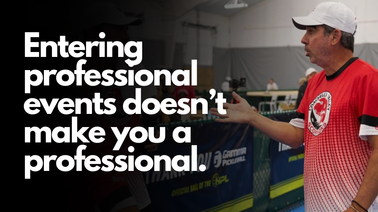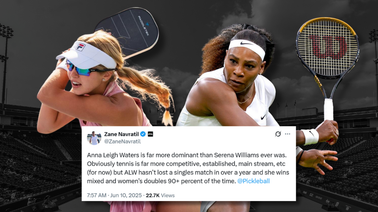
This recent Washington Post opinion piece looks oddly familiar...likely because it utilizes the same old stereotypes and complaints against pickleball that players themselves contend with all the time.
While I totally believe in the legitimacy of one's entitlement to their opinion, there is something admittedly awe-inspiring about a person who's seemingly only played pickleball once writing an OP-ED based on questionably-scientific and otherwise cliched notions surrounding the sport.
In short: I read Mr. Rick Reilly's article and knew I could systematically disprove most of the points he presents against pickleball, even if they weren't designed to be taken too seriously. So that's exactly what I did.
Opinion: pickleball is played mostly by "old people."
The 65-year-old author's first statement which demonstrates his loose grasp on reality claims pickleball is "a game in which two mostly very old people...whack a plastic whiffle kind of ball at two other mostly old people..."
I don't completely blame him for thinking that way. Pickleball players aged 55 and up comprised the largest age bracket of pickleball players two years ago (source). But that was then, this is now.
Fact: the average age of pickleball players is 34.8 years (source).
Not that age matters at all. We've talked about ageism from outside the pickleball community before. Part of what makes the sport so approachable is that a 10-year-old can conceivably defeat a 35-year-old just as easily as a 70-year-old can defeat a 25-year-old.
Just look at the age gap among the highest-ranked players in the world: teenagers go toe-to-toe with GenXers during most of the pro tours' events.
This notion of "pickleball is for old people" – the assumption that it is mostly played by people of a certain age – is simply inaccurate and has been for nearly two years.
Opinion: pickleball is not a sport.
"...It’s not a sport," Reilly writes, full of hubris.
"Any game that you can take up after breakfast and be pretty good at by lunch is not a sport" – defining the sport's learning curve as its only qualification for the distinction, contradicting the existence of his next point using a purported lack of exercise as another mark against it (more on that in a moment).
Fact: by most common measures, pickleball has established itself as a bona fide sport.
Anyone can make a subjective claim about any game's inadequacies for consideration as a sport, but Reilly botches his explanation so severely that I very much doubt anyone should consult him on anything sports-related.
Pickleball has been played for nearly 60 years, shared across multiple generations in over 63 countries, and attracted millions of spectators on both network television and internet streaming.
The only common baseline for sporthood which pickleball has yet to achieve is a place at the Olympic Games.
But if we were to base our logic completely on Olympic status, we would have to disqualify Cricket (the second most-watched game in the world), Polo (one of the oldest team sports, originating in the 6th century BCE), Squash (played by over 17 million people), and other popular activities most people accept as sport.
A better game starts with better sleep
We all know how important a good night’s sleep is to staying at the top of your game on the pickleball court…but many don't realize that teeth grinding and jaw clenching in your sleep often results in waking up feeling tired (not to mention excruciating jaw pain).
Up to 40% of US adults grind or clench their teeth. But you can protect your teeth with a custom night guard.
Getting one from your dentist will cost you at least $500. Fortunately, Remi has reinvented the night guard to be far more comfortable, convenient, and affordable.
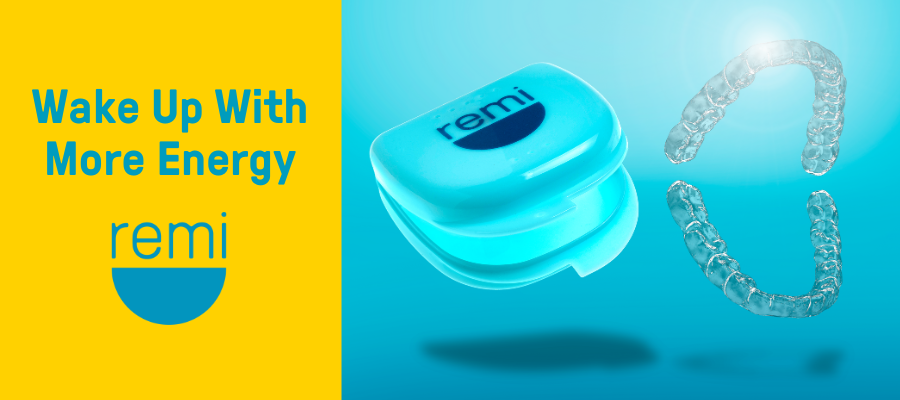
Remi sends you an at-home impression kit and has a team of in-house dental professionals to make you custom, comfortable night guards—for 80% less than the cost of the dentist.
Get 25% off today with code DINK25.
Opinion: pickleball is not 'great' exercise.
Ignore the author's lack of specificity as he contrasts the vague "great" with what he assumes is a limited amount of physical activity players can achieve on the pickleball court.
Instead, focus on the specific study he cites, which claims "an hour of pickleball gets you only half as many steps as just walking the hour," assuming that step count is the only logical means of measuring physical activity.
It's the same study Reilly's platform, Washington Post, wrote about last year, and the same study we criticized soon after.
Fact: pickleball's efficacy as a fitness tool requires more research, but shows promise.
The problem with the referenced study from last year is that it revolves around step count as the determining factor for level of exertion.
But the study subjects’ heart rate readings indicated both singles and doubles competition might provide more of a workout than the step counts demonstrated.
Heart rate is a far more accurate predictor of exertion than step count – and even that doesn't tell the whole story when compared with calories burned (source).
Plus, a more recent study from North Carolina State University found that playing pickleball helped a group of adults aged 65 years and up reach the recommended weekly dose of “moderate to vigorous” exercise.
The players only engaged in the sport twice a week, achieving an average of 3,477 more steps on game days and 68 minutes of moderate to vigorous physical activity per session.
"We were able to isolate their pickleball activity versus everyday activity, and our key finding was that pickleball was the sole reason most participants were able to meet CDC standards," the lead author of the newer study writes.
Admittedly, more research into pickleball's fitness efficacy needs to be conducted across age ranges and utilizing different methods of measurement. But given the sport's recent monetary investments, this is likely already underway.
Opinion: pickleball is too noisy and disrupts other sports.
Reilly claims pickleball is "swallowing up" tennis and basketball courts and noisily driving neighbors to the brink of madness.
His proposed solution revolves around the use of "green zone" paddles, which supposedly reduce the throw of pickleball's unique "pwock" sound.
But the examples of green zone-approved paddles he links to come from a 2018 roundup of outdated paddles. The roundup explicitly states that noise "should NOT be the number one determining factor" in choosing a paddle.
Fact: the noise level of pickleball relative to other sounds is misrepresented, and the noise issue itself is due in part to the lack of adequate zoning and town planning.
Let me be clear: I feel for the people whose quality of life earnestly suffered due to pickleball noise.
But nobody wants to solve that problem more than pickleball players. They stand to benefit most by the construction of their own courts, positioned away from distractions like back yards and other sports.
The primary reason pickleball players have famously annoyed neighbors is that cities and towns were overwrought with requests for courts and couldn't properly measure noise, re-analyze their zoning procedures, and place courts appropriately.
The primary reason tennis and basketball players find fault with pickleball's growth is because they simply aren't used to the encroachment.
These are growing pains which naturally resulted from the sport's explosive growth over the last few years. It's hard to blame common sense cause-and-effect on the sport itself. One could argue that blaming any one particular entity for these dramas is also foolish.
Countless headlines have bemoaned pickleball's noise – there was even an entire HBO Real Sports segment dedicated to it – but very few detractors have been able to identify quantitative evidence behind their complaints.
For example: Denver's noise ordinance allows residential levels to reach 55 decibels from 7 a.m. until 10 pm and 50 decibels all other times.
Findings showed that the pickleball courts reached 70 decibels at homes near some courts in that city.
A vacuum cleaner.
Garbage disposals, dishwashers, food blenders, and car washes all have pickleball beat in terms of noise. They all measure in the 80-decible range.
Oh, and that roundup Reilly refers to as a solution to noise issues? It explains that pickleball's governing body, USA Pickleball, does not provide a noise rating. That task apparently belongs to Sun City Grand Pickleball Courts in Surprise, Arizona.
The problem? The organization hasn't released an updated list of suitably-quiet paddles within the last two years, even as paddle technology progressed considerably in that time.
The author seems to have Googled, "quiet pickleball paddles" and pasted the first link that came up (without understanding the basic premise for why his "solution" doesn't make sense).
It bears repeating that Rick Reilly's article was clearly designed to be a light, levity-inspiring read for folks who, like him, already dislike or don't care about pickleball. My retort above is published on a website designed to be read by folks who already love the sport.
The key difference between the two articles is that I actually researched mine.
According to his bio, Reilly was hailed by USA Today as “the closest thing sportswriting ever had to a rock star.”
They have a point: like many actual rockstars, the author seems hell-bent on regurgitating the same tired, questionable viewpoints in his work.
So let's call him "The Kid Rock of Sportswriters." Congrats on the title, Rick.
Find more pickleball news, opinions, and tips in our weekly newsletter. If you enjoyed the article above, you won't want to miss this:
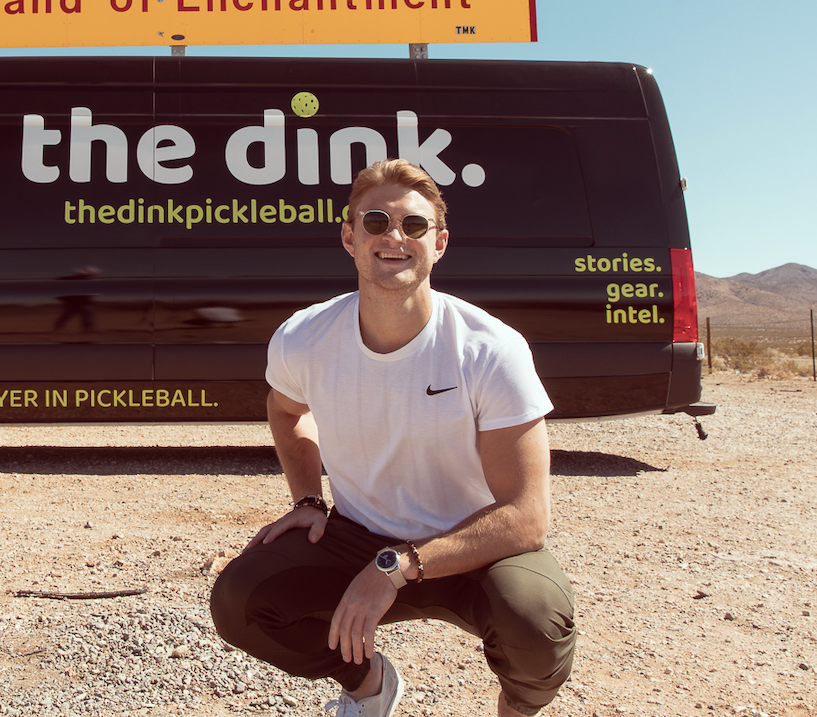
Love Pickleball? Join 100k+ readers for free weekly tips, news & gear deals.
Subscribe to The DinkGet 15% off pickleball gear at Midwest Raquet Sports


